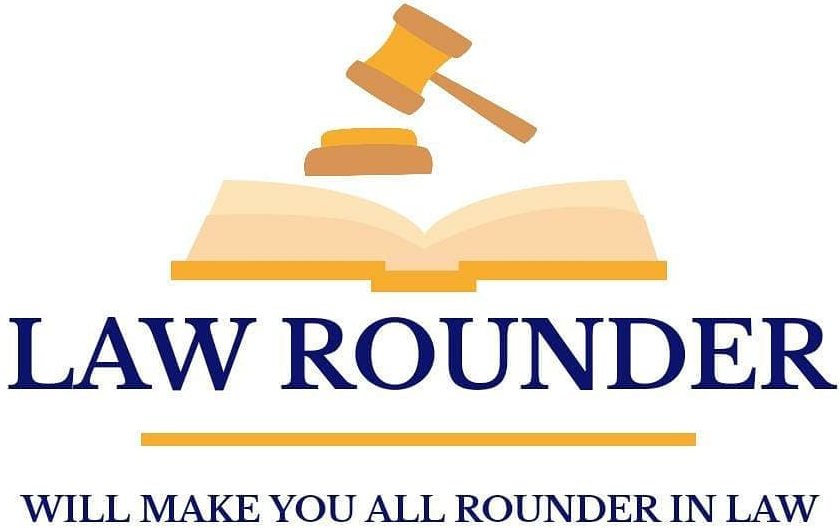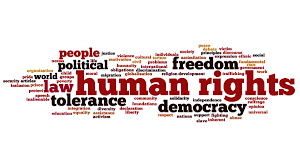
Introduction
So, the consumer now days are not only being not only restricted to physical needs with the change in time there has been more use of electronic commerce whether we talk about Amazon, Flipkart or any kind of E-commerce platform customers are just one click away from getting anything they want or any product as per the needs of the consumer. As the concept of the consumer has been defined under section 2(1)(d) of the consumer protection Act 1986 i.e. any person who buys the goods for consideration or hires\ avails any services for consideration So, the definition reminds us that anything or person who gives any kind of consideration for hire of services is considered to be a consumer. So, electronic consumers are also under this category. It’s not just only about the use of those sites for purchasing products. It can be considered anything for which a person plays a certain amount for use of that service considered as a consumer, another thing that has to be kept in mind as e-commerce is not only about Amazon or Flipkart. As being the 21st-century internet has to be considered as the need of the hour it will be considered as the right to life and dignity under Article 21 of the constitution of India. Another thing that has to be kept in mind with the E-commerce is the use of De-mat Account that has to be kept in mind as e-commerce is not only about Amazon or Flipkart it is about the things for which the consumer pays the consideration to get services as per the act that has been discussed above as it can be the use of the digital signature or the use of the De-mat accounts that has been in the market in the recent times to avoid any kind of chaos especially to get more efficiency from the work to avoid any kind of paperwork the use of these accounts or the use of digital signatures has been used by the consumers, as the process is called dematerialization of accounts that has been considered by the SEBI Act 1992. As these things are considered to be one of the transformations of the physical market into a virtual market whether we talk about the share market or any kind of market the things have come across the virtual network. The whole globe got converted as another thing that needs to be considered that how the rights of the consumer are getting violated as for that the legislation has passed the Consumer Protection Act 1986 but looking at the needs of the consumer and the change in time leads to the use of the Information Technology act 2002, so these two acts are considered to be sole for providing the legal remedies for the consumer in case of the rights violated of the consumer these Acts are there providing the legal remedies for the consumer. The enormous flexibility of the Internet has made possible what is popularly called E-Commerce. So, the concept of e-commerce has also introduced the digital signatures as there are many cases where the signature has been violated of the consumer of many parties as that has led to the violation of the rights usually the concept of Signature came under the legal aspect of the Indian Contract Act 1872 but with the concept of digital, there has to be the inclusion of the Information Technology Act 2002. So, with the change in time, these things have been introduced as depending upon that the rights of the consumer need to be changed or they have to be included according to the need of the hour. So, the following document will be discussing the legal aspects of the rights of the consumer in a digital era both the national and the international ways as certain acts have been there in several countries which shows that how the rights of the consumer have been treated in this digital era or how the legislation has passed the Act keeping in mind the change in the situation because both things have to be kept in mind. These concepts are going to discuss in the paper keeping in mind the present situation of the consumer in this cyberspace.
So, the document will be talking about the Electronic documents, sale and purchase through E-commerce, rights, and duties of being a consumer, how the consumer has been changing with the change in the cyberspace and the last thing are the legal remedies which the consumer must get in the age of digital era.
II Increased Internet Customers and E- consumers
As there have been increased internet customers with the coming age of technology as there were many countries where many countries have been developing as countries like India where Internet has been increasing slowly but gradually but with the increasing internet Indian government has passed the legislation i.e. Information technology act 2002 with the coming of this legislature there has been increasing cybercrime and nowadays there are 50% of cases are mostly of cyber offenses. There have been most cases of card fraud or consumers consumer fraud. The consumer fraud where basically kind of banking fraud or the several accounts got hacked as there were several cases where streaming platforms like Netflix or Amazon Prime or Ola these apps got hacked where people use their email accounts and passwords as those people were also consumers as they have paid a certain amount and now those companies are providing their services to customers. There have been consumer fraud as consumer protection i.e. privacy is considered to be an important thing in this era as in India most of the things or work are done with the help of internet as there were various shopkeepers which have been transformed from physical shops from the E-market as they have collaborated with the stores like Amazon and Flipkart these markets have changed the market and transformed them developing areas for the shopkeepers. Usually, there are Eight dimensions for consumer protection under the digital world:
As there are certain UN Guidelines for consumers protection (UNGCP) serve as a conceptual framework to analyses consumer protection.as these frameworks consist of eight dimensions and forms the starting point for these Digital consumers protection and empowerment indicators
- Governance and participation
- Access
- Economic interests
- Product safety and liability
- Privacy and data security
- Information and transparency
- Education and awareness
- Dispute and redress
As another thing that has been coming is the foreign direct investment (FDI) in India is regulated under the Foreign Exchange Management Act 1999 (FEMA). The department of Industrial policy and promotion (DIPP) and certain ministry in India as they make policies on the foreign Investment or any kind of investment they make across the globe or in India. As foreign Investment has gained much popularity in India because people have more earning capacity and with, they are seeing more advantages across the globe. The FDI policy is having two E-Commerce policy i.e. Marketplace model Inventory model. As still there are some sought of security issues in E-commerce:
- Authentication and identification
- Privacy
Data protection, the concept of data protection under section 43A of the IT Act, there are two categories of information for the protection of data in India:
- I) Personal information
- ii) Sensitive personal data/information
Still, there are certain protections in e-commerce related to e-commerce these consumers under these categories face a certain legal problem because they generally don’t know about the seller and this sometimes might create a problem for the consumers and if the product gets defective it will create a problem for the consumer and this has to be considered hectic for the consumers because he has to provide the bill copy and after that deal with customer care which is a long process and after that, the work gets completed in the limited time or not this is also considered to be a problem for the customers. As looking at these e-consumers the government has introduced the concept of consumers under the Consumer Protection Act 1986 is the concept of electronic items has been introduced in the legislation in the year 2002 by looking at the current scenario CPA governs the relationship between consumer and service providers:
- Removal of defects/ deficiencies
- Replacement of goods
- Return of price goods
- Pay compensation as may be awarded
- Discontinue the unfair trade practice
As intellectual property issues in E-commerce also plays an important role for the protection of E-consumers as the concept of the intellectual property rights are related to copyright issues as under this both the parties i.e. there can be copyright violations if one person copies certain content from a website but the person paid the royalty i.e. certain consideration’s that has to be paid to the person concerned if not paid that will be considered as a violation of copyright or using of any software the person needs to sign and E-contract that has been discussed above that what is the relation between these contracts and e-consumers and how these contracts have legal validity upon consumers.
So, a consumer whether e-consumer or physical consumer both the things have liability for infringement of IP is complicated as the concept of IP is territorial so following are the common civil remedies for the infringement in India:
- A temporary or permanent injunction against the infringer prohibiting the infringing activity.
- Damage to the extent of lost profit
- Order for accounts
- Order for seizure/ destruction of Infringing material
As applying to certain liability there have been certain criminal provisions i.e. imprisonment up to 3 years basically for:
- Applying for a false trademark
- Knowingly infringing a copyright
III Jurisdiction issue in E-commerce
As there have been certain jurisdiction issues under E-commerce matters results in some issue under jurisdiction problems which would result under several e-commerce matters the concept is that whose jurisdiction, where to take action, what test & laws to be followed when an individual resides outside jurisdictional area. This concept has been called as Single Jurisdiction. As this call for the concept:
- Cross Border Issues
- Intellectual property Rights
- Digital products- Services or goods
- Contract with Minors
- Taxation
- Cross Border Issue
The 3 main concerns prevail-
- Forum jurisdiction
- Choice of Law
- Enforcement
Traditional principles like-
- Personal jurisdiction
- General jurisdiction
- Specific Jurisdiction
- Longarm statue
As the concept of personal jurisdiction is applied in the US it is the subject to court in which the case is filled so this results in the concept of the following things:
General jurisdiction:
As this concept results in the domicile of the person or the systematic contact
Specific jurisdiction:
This results in the minimum contacts. As the specific jurisdiction is where a particular area to assert their jurisdiction.
As now we will talk about the jurisdiction under Indian concept and they deal with these prospects so the answer to this question is the use of section 75 of the IT act 2000 which has been amended under 2008 as the concept says that there has been the provision of these offenses has also been applied outside India and constituting the offense or contravention involves a computer, computer system or computer network that has been located in India or outside India as the outside India concept has been inserted after the amendment of 2008. As the amendment of 2008 has been done concerning the change in environment as with that time the term Internet has been changed which results in the various amendments and with that time there has been a slight rise in the crime rate and the offenses.
IV Conclusion
So, at the end the thing is that there has been change in the time with the increase in the technology and with the coming of technology there has been many laws there has been introduced in India and outside world the example can be taken from the country US basically there has been senate system which leads to that each and every state has their own law as result there has been introduction of CCPA i.e. California Consumer Data protection Act the basic purpose of this law is that to safeguard the consumer from various internet related matters and take care of its privacy, with respect to each and every country around the world the time has been arrived which shows that there has the need for the laws related to consumer protection in digital era as we have talked about certain matters related to electronic contracts and the Indian contract act 1872 as there were certain sections that has been talked about the sections like 19 and 20 of Civil procedure code and section 75 of Information Technology Act 2002 which has been amended in the year 2008 as there has been inclusion of the outside India concept As the country like US where there has been the use of the senate system as the state named California has mentioned the law CCPA(California Consumer protection Act) for the protection of the privacy of the consumers.



